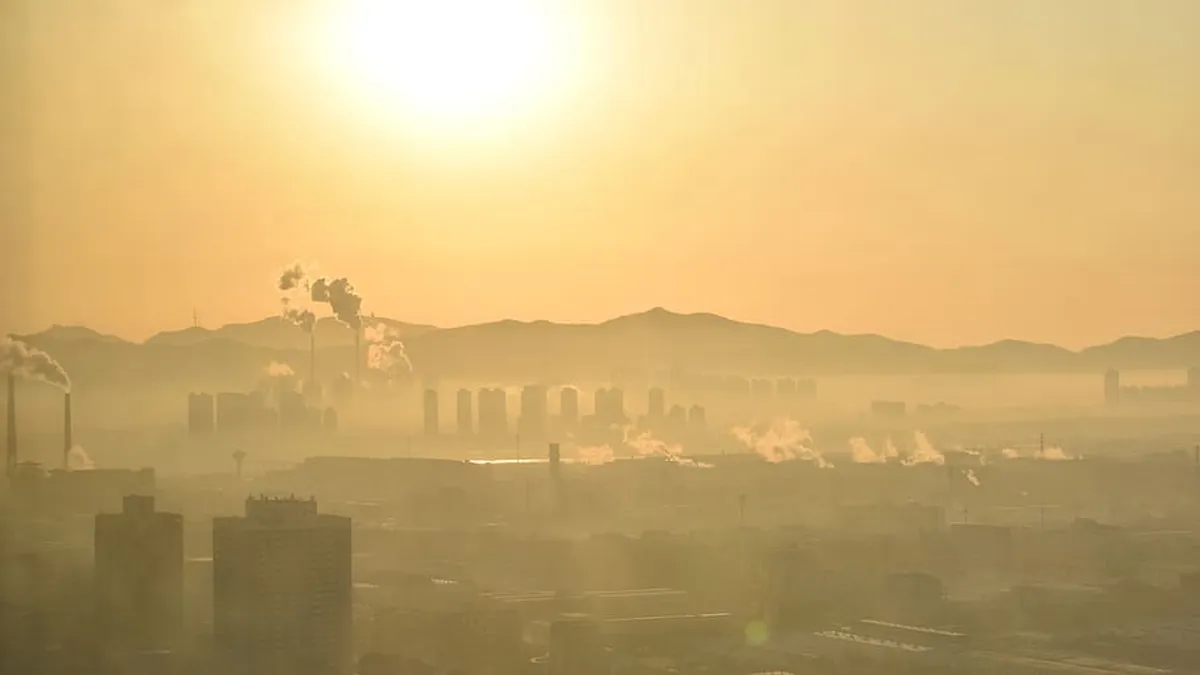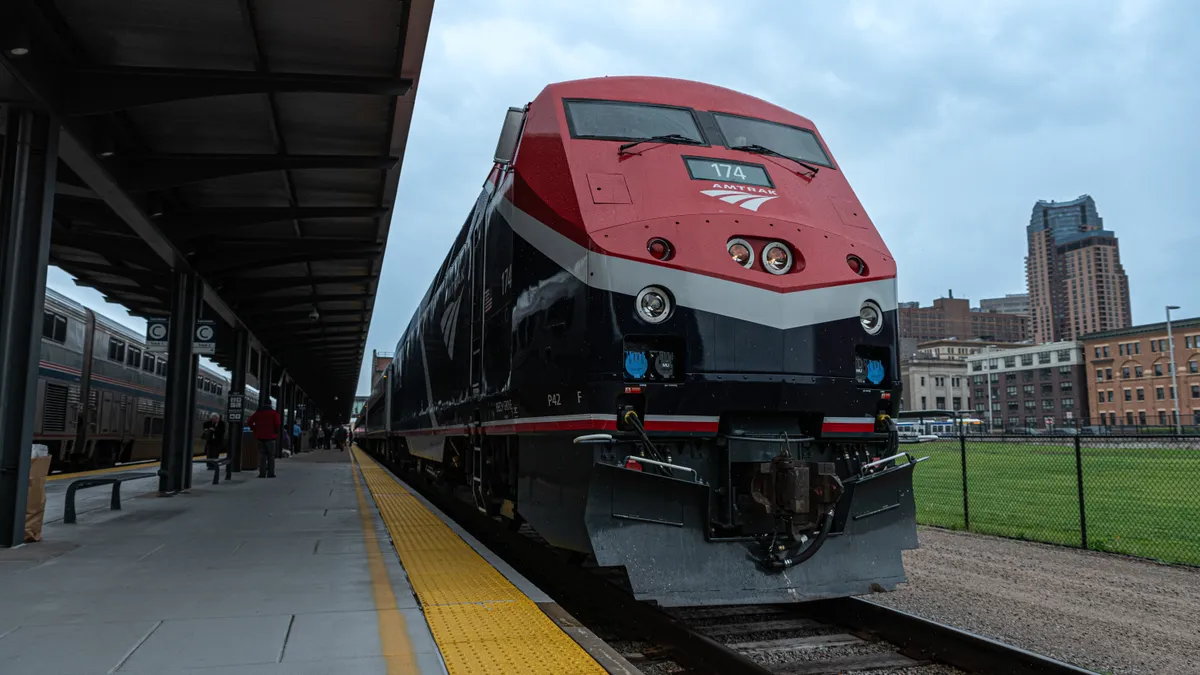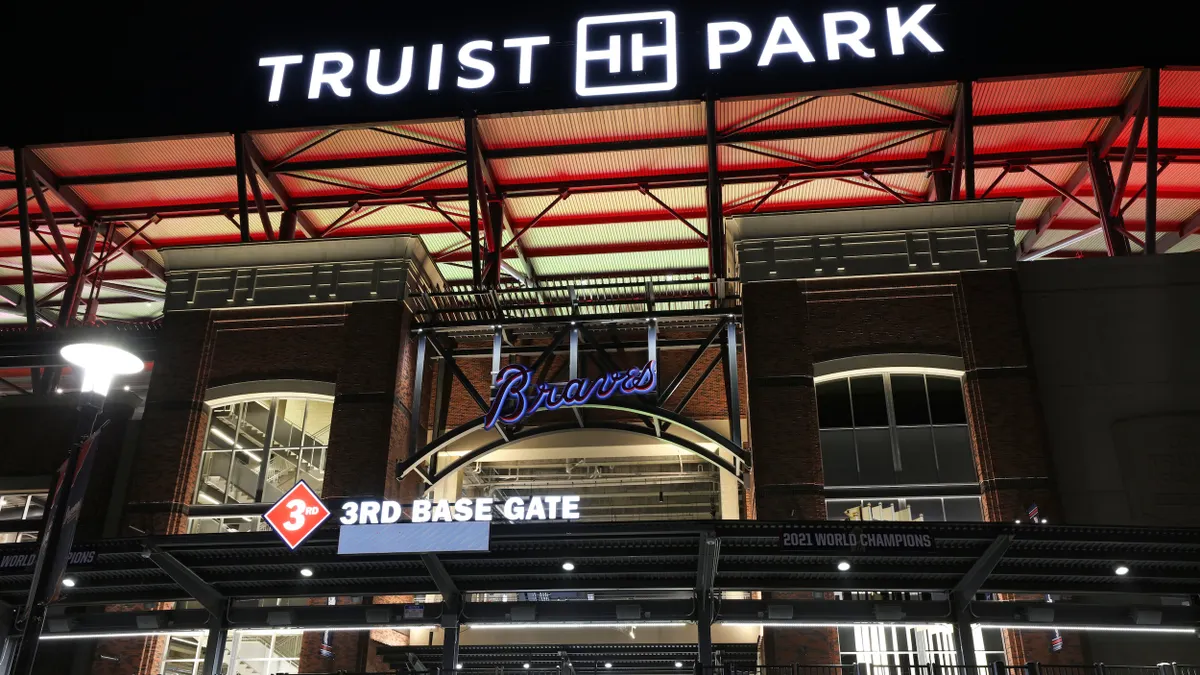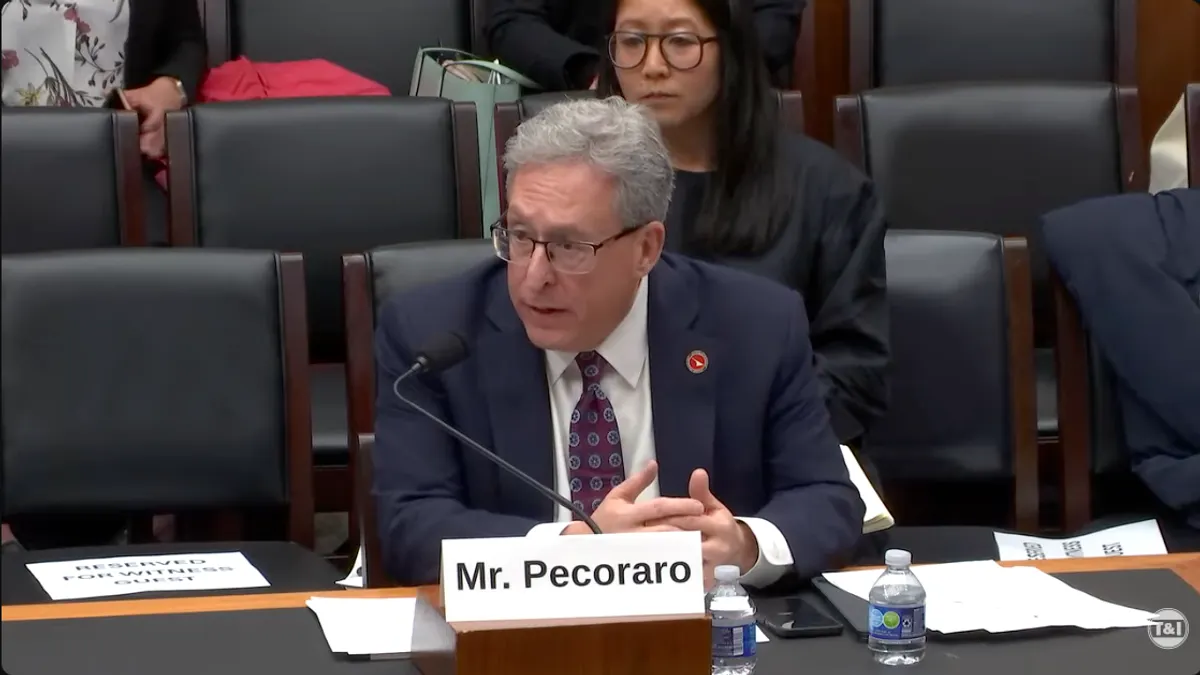As the coronavirus (COVID-19) pandemic sweeps across cities, causing closures and suspensions of services, climate experts say it could sport a silver lining of reduced carbon emissions and in turn lead to a more sustainable economy.
The impacts of the coronavirus on emissions, air quality and other environmental factors may be hard to definitively quantify, but there are already some lessons to learn from countries like China, which saw improved air quality and lowered emissions following quarantines and lock downs.
With a major economic stimulus package likely to come soon from Congress, some see it as the perfect chance to make infrastructure greener and more resilient — though the balance of competing priorities during a fiscally challenging time may present a challenge.
'We shouldn't have to shut down our whole economy to reduce emissions'
If China is any indication, cities could see significant reductions in emissions as residents are encouraged or even mandated to practice social distancing and stay at home to prevent further spread of the disease.
China saw an estimated 25% drop in carbon dioxide emissions nationwide in the two weeks following the Chinese New Year, compared with the same two-week period in 2019, according to Lauri Myllyvirta, an analyst at the Centre for Research on Energy and Clean Air.
Meanwhile, NASA and the European Space Agency (ESA) satellites saw "significant decreases" in nitrogen dioxide over the country, with the agencies suggesting the change "is at least partly related to the economic slowdown following the outbreak of coronavirus."
Some see those emissions reductions as an example of what could occur in cities — albeit under extreme circumstances — if humans can change their habits to support a more sustainable future.
"This is just a clear idea that our activities, our way of producing, our way of consumption, is related to emissions," Beatriz Cardenas, air quality manager in the World Resources Institute's (WRI) Mexico City office, told Smart Cities Dive. "This is a way of changing that and being able to combine it with our own ambitions."
I know we're all contemplating the pandemic, but check this out. Air quality in SoCal right now isn't good. It's incredible. Like numbers from another era. It's not just the rain. Having less traffic is making our city more livable. Think about it. pic.twitter.com/GPNIzDnmXj
— Peter Flax (@Pflax1) March 18, 2020
In the United States, parts of southern California have already seen an impact. The region typically has streets clogged with congestion, but now is experiencing an uptick in air quality as more people stay home.
That said, some experts are skeptical that cities can sustain emissions reductions simply from people staying home. Michael Gerrard, director of the Sabin Center for Climate Change Law at Columbia University, told Smart Cities Dive that the results in China only look positive because the country has paused much of its industrial activity, which might not translate to the United States.
"I don't know whether there is a decline in industrial activity in the U.S," Gerrard said. "And in the U.S., a lot of industrial activity is more remote from cities… The local air pollution effect is much more the result of less vehicle traffic."
Some have also warned that existing levels of air pollution could make the pandemic worse for those already vulnerable to respiratory and cardiovascular illnesses, or who live in economically disadvantaged communities, which are traditionally subject to more air pollution.
Despite the impacts on emissions being hard to measure, other experts have said they could serve as a wake-up call to elected leaders in the U.S. that economic models must change.
"We know what's causing emissions, and we shouldn't have to shut down our whole economy to reduce emissions," Jacqueline Klopp, co-director of the Center for Sustainable Urban Development at Columbia University, told Smart Cities Dive. "We really should be changing the structure of our economy… what's amazing is how much pollution we accept, and how much of a public health cost it is that we seem to accept."
The essential role of transportation
Some transportation advocates are leveraging the impacts of coronavirus to advocate for more transit funding and alternative greener modes.
A recent report called for a transportation-based Green New Deal. With transit ridership cratering as people avoid non-essential travel and commuting, the report authors said it's crucial to maintain and boost alternative options.
"The current crisis is really showing us how essential transit is, and how important it is to keep essential services like transit operating despite ridership and financial shortfalls," Steven Higashide, director of research and report author TransitCenter, said on a call with reporters. "The climate crisis shows us that we really have to think about putting people to work in ways that decarbonize transportation."
The massive reductions in subway use has led the Metropolitan Transit Authority (MTA) to ask for a federal bailout of $4 billion. However there also appears to be a surge in people cycling, especially in hard-hit areas of New York City.
The increase in Citi Bike ridership has caused New York City Council Member Ydanis Rodriguez to issue a statement requesting more station and temporary bike lanes to keep delivery workers and other cyclists safe.
"The current crisis is really showing us how essential transit is, and how important it is to keep essential services like transit operating despite ridership and financial shortfalls."

Steven Higashide
Director of research, TransitCenter
Some cities have already completed similar work as their residents self-isolating at home. Bogota, Colombia, for example, opened nearly 72 miles of new bike routes to encourage bicycling, ease congestion and support social distancing.
Questions around investing in new kinds of transportation infrastructure, such as Complete Streets projects that are gathering popularity at the city-level but struggling to gain a national foothold, should be raised, according to Klopp with Columbia University.
"Why aren't we putting more of our money into that kind of infrastructure anyway?” she said. "I think if the coronavirus gets us to ask these questions; it has a silver lining."
Building back stronger
There are ongoing conversations about a potential federal stimulus package to reboot the economy while providing relief to affected business sectors and households. The Washington Post reported late Wednesday that the Trump administration is proposing a $1 trillion rescue plan, with cash provisions for many Americans, $300 billion to help small businesses stay afloat and stave off lay-offs, as well as money for other sectors like airlines and hotels.
"We could have a win-win situation, where a great deal of money goes into stimulus, and that stimulus is dominated by the clean energy transition that we needed anyway."

Michael Gerrard
Director, Sabin Center for Climate Change Law, Columbia University
With the proposed funds sure to trickle down to the local level, there is an opportunity to put forward new green infrastructure projects that can provide jobs. Municipal budgets will likely be stretched by local-level coronavirus response efforts, so federal help could be key in adding environmentally-focused efforts, according to Gerrard.
"We could have a win-win situation where a great deal of money goes into stimulus," he said. "And that stimulus is dominated by the clean energy transition that we needed anyway." He noted how jobs to retrofit buildings with energy-efficient measures or to build wind or solar capacity could help to "put a lot of people to work."
The cities that pursue these green measures following this disaster will be the ones that are best positioned in the next disaster, said Michael Berkowitz, founding principal at the Resilient Cities Catalyst.
"It's those communities that will do better when this is all said and done. That will help just as much during the next flood or the next drought or the next water shortage or the next wildfire, as it will in coronavirus," he told Smart Cities Dive.
We could also be experiencing a perfect opportunity to educate people further about what lives could be like in a greener, more sustainable economy, Klopp said. While this conversation is arising due to some of the worst imaginable circumstances, it could open up new possibilities.
"If people are enjoying clean air, we should be saying, this is what we should have all the time," Klopp said. "This is our future."
To keep up with all of our coverage on how the new coronavirus is impacting U.S. cities, visit our daily tracker.





















